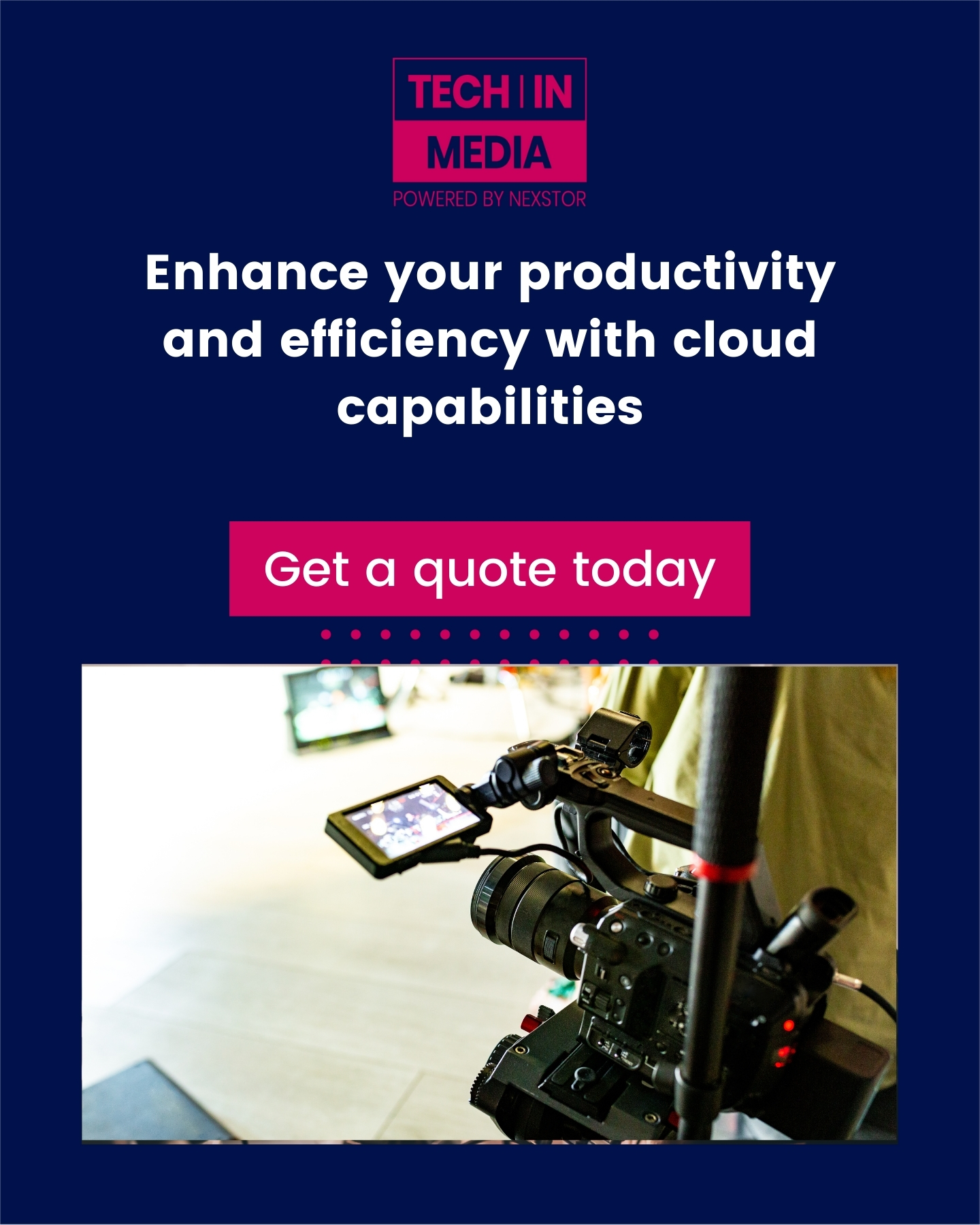File storage systems are a crucial consideration for the media and entertainment industry. Consumers expect higher quality media productions that require larger file sizes — much of the file data is unstructured, which complicates the storage and retrieval of data. Being able to retrieve a file quickly and efficiently is essential to the productivity of the media and entertainment industry —




- Unstructured files need to be managed for possible retrieval.
- Media files need the capability to be reused or incorporated into other media.
Qumulo
Qumulo is a hardware-independent solution that supports hybrid storage devices. It operates on certified platforms such as AWS, GCP, Azure, HPE and Fujitsu. Seeing as Qumulo is software-based, it eliminates vendor lock-in — companies have the flexibility to move across certified platforms as needs change. Allowing many organisations to be free to operate in an on-premise, hybrid and/or multi-cloud environment that Qumulo can support. Qumulo delivers real-time insights into data across on-premise and cloud infrastructures. The file storage system can scale while retaining control of data. This way customers can manage their storage at a granular level using services that are programmatically configured and managed, based on their capacity and performance. The Qumulo filesystem can scale to support billions of files with no capacity or performance overheads for small files.

Isilon
Isilon is a group of data storage solutions offered by Dell, part of the EMC PowerScale family of products that delivers quality hardware all from one established company.- The Isilon F-series: Offers all-flash nodes to accelerate workloads with performance and capacity capabilities that ensure greater efficiency.
- The Isilon H-Series: Accommodates use across hybrid environments — designed to deliver cost-effective performance across an enterprise.
- The Isilon A-series: Provides a lower-cost solution for storing ageing assets while providing accessibility.
Qumulo vs Isilon
Both solutions are leaders in cloud storage and appear in Gartner’s Magic Quadrant for Distributed File Systems and Object Storage year after year. When compared with other options, both are affordable and scalable, yet each solution has distinct, individual product offerings.Storage
Both products are viewed as cost-effective and efficient storage solutions.- Qumulo: Delivers 100% of the usable storage without performance degradation with a separate space reserved for drive failures and protection.
- Isilon: Provides between 80% and 85% of usable storage without impacting performance.
Platform
Isilon products operate on a fixed appliance, while Qumulo is hardware independent, operating as a software solution.- Qumulo: can help organisations remain independent of specific vendors or operate in a multi-cloud environment.
- Dell: Their latest release of the OneFS operating system is designed to deliver all the flexibility of software-defined storage, while eliminating the need for confirming hardware and software compatibility.
Cloud
- Qumulo: Uses a hybrid cloud file storage that claims to be the highest performance file storage system in the cloud — what’s more, It has no practical storage limit with the hybrid option! The software is a cloud-native design, allowing it to take advantage of a range of cloud services. Qumulo’s Shift product allows file data to be replicated into/out of S3 Cloud storage that allows full access by Cloud-based applications.
- Dell: Uses CloudPools to allow tiering in public, private, or hybrid cloud environments — including services such as Amazon Web Services, Google Cloud, and Microsoft Azure.
Reporting
- Qumulo: Features built-in analytics to help optimise storage capacity — allowing administrators to view real-time data and assess operational efficiency and make adjustments if needed. Using the collected data, businesses can make data-driven decisions to optimise storage capabilities and scale for the future. Cloud-based reporting is delivered as part of the support services and gives in-depth reports into all aspects of the cluster (performance, capacity and environmental etc). This data is held for the life of the system and allows long term trending and analysis to be performed.
- Isilon: Relies on Dell’s Insight product for reporting and data analysis — the reporting tool enables organisations to view historical storage capacity and usage to make changes as needed. By knowing how a system is performing administrators can make decisions on system usage and plan for the future.
Media & Entertainment: how do you choose?
Deciding on a storage solution can be difficult, especially when choosing between two vendors, such as Qumulo and Dell — both of whom offer products with such a high degree of flexibility and scalability, without sacrificing on performance. What matters is how well the solution meets an individual company’s needs. When evaluating possible solutions, consider the following steps —- How much storage capacity do you need now?
- How much storage do you forecast you’ll need in the next three years?
- What level of performance will be required as you scale up?
- What hardware will be needed?
- Knowing the answers to these questions can help inform any decisions you make.
Factor 1: Capacity
The media and entertainment industries have grown exponentially within the tech-boom, so naturally, the size of files and thus capacity needed to store those files has increased too. Anyone in the media business should have a grasp on its current storage needs, but projections can be harder to define as they’re relative not only to your individual company’s scalability, but also to the evolution of technology. From vinyl, to CD, to digital streaming — who knows what format will be next and when. The best solution is to find an experienced partner that can help forecast what your future needs may be. As, if you don’t know your future requirements, you may end up selecting a solution that can’t keep up with your growth.Find the right data storage solution for your performance needs. Get an instant quote >>>
This is why scale-out storage solutions are ideal for this requirement, since as the demand grows for more capacity and performance, additional nodes can be added to meet these new demands.Factor 2: Performance
When looking for a solution, be sure to look at performance — after all, you want to avoid buffering at all costs. How efficient are the solutions as they scale up? Some solutions deliver better performance as the storage size increases, others may require more investment in hardware or software to maintain a level of performance. If you have limited IT resources, you may need to consult a third-party partner to determine current and future performance requirements.Factor 3: Support
Ongoing support should be carefully evaluated — the media and entertainment industry is one that relies on individual and personal journeys with your content, and so, your support system is the best tool in your arsenal for maintaining a good relationship with customers. You need to ask yourself, how is support delivered, and is it delivered well?- Qumulo has a support organisation that is focused on storage products only.
- Dell provides support for a range of products.
Factor 4: Strategy
Finding the right solution should be part of an overall plan for managing digital assets — which solution fits best with your overall plan? You need to consider your hardware and software compatibility, as well as the operating environments. What about ease of use? If you have limited IT resources, look at the skills required to manage the solution. Sometimes, the best strategy is to find a third party willing to partner with you to find and support the right solution for your needs.Factor 5: Investment
When evaluating the cost of a cloud storage solution, be sure to look at more than the hardware, software, and support costs. The cost of IT personnel to administer the solution can add to the overall expense of a solution. In a world where IT resources are scarce, taking valuable resources away from mission-critical projects to manage a storage solution may not be cost-effective. If storage solutions use subscription plans, be sure to look at the cost over time — some solutions start with a low fee but quickly increase the price as more storage is required.What’s next?
The bottom line is, as a member of the media and entertainment industry, you need to have invested effectively into your storage solution. In order to do that efficiently, you need to have an idea of what your desired storage solution involves. There are so many variables to take into consideration that there is no one-size-fits-all solution. We, at Nexstor, have years of expertise in the field and so to ensure that you’ve found the right solution for your needs, try our handy quote calculator. Our expertise in on-premise and cloud solutions can help you discover the best solution for your ongoing needs.
